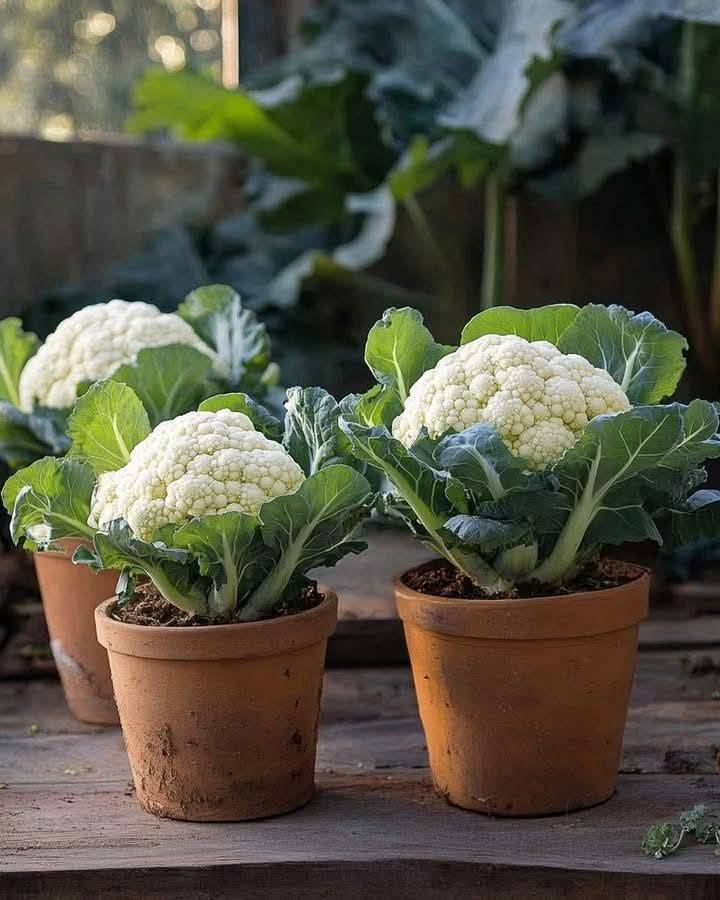Cauliflower heads turn yellow or green if exposed to too much sun. To keep them pure white:
-
When the head is 2-3 inches wide, gently tie the outer leaves over it with twine.
-
Check every few days to ensure no moisture buildup (which can cause rot).
Self-blanching varieties (like ‘Snowball’) may not need this step.
7. Pest & Disease Management
Common Pests:
-
Aphids, cabbage worms, slugs – Use neem oil or handpick them.
-
Cabbage loopers – Apply Bt (Bacillus thuringiensis).
Diseases to Watch For:
-
Clubroot – Ensure good drainage.
-
Downy mildew – Avoid wetting leaves; use copper fungicide if needed.
Prevention: Rotate crops and keep pots clean.
8. Harvesting Your Giant Cauliflower
-
Timing: Heads are ready 70-100 days after planting.
-
Signs of Readiness:
-
Head is firm, compact, and 6-8 inches wide.
-
If it starts to separate or discolor, harvest immediately!
-
-
How to Harvest:
-
Use a sharp knife to cut the head, leaving a few leaves attached.
-
9. Common Mistakes to Avoid
❌ Too small of a pot → Stunted growth.
❌ Inconsistent watering → Cracked or bitter heads.
❌ Overcrowding → Poor air circulation = disease risk.
❌ Ignoring pests → Can ruin your crop quickly!
10. Enjoy Your Homegrown Cauliflower!
Now that you’ve grown a huge, delicious cauliflower, try:
-
Roasting with olive oil & spices.
-
Mashing as a low-carb alternative to potatoes.
-
Making cauliflower rice or pizza crust.
With these steps, you’ll maximize your cauliflower’s size and flavor—right from your pot! 🌱🥦
Happy Gardening!
